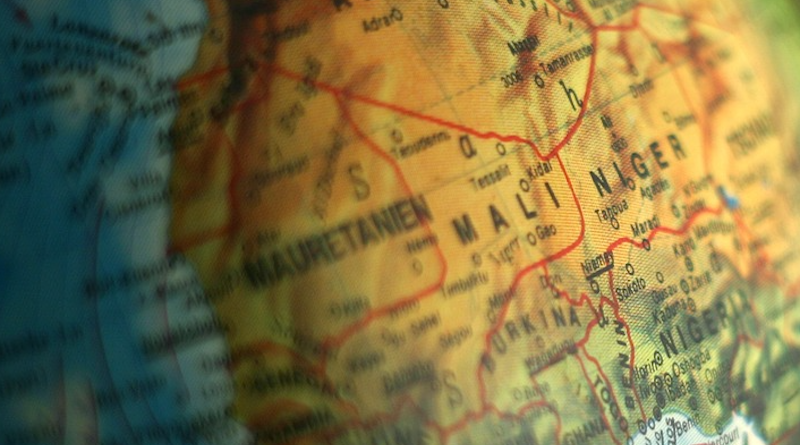The historic 15th BRICS (Brazil, Russia, India, China and South Africa) summit held in Johannesburg has successfully ended with a joint declaration, outlining comprehensive pathways forward into the future. An important question raised in the declaration deals with BRICS commitment in the sphere of political and security cooperation.
The declaration says in part (point 12): “We are concerned about ongoing conflicts in many parts of the world. We stress our commitment to the peaceful resolution of differences and disputes through dialogue and inclusive consultations in a coordinated and cooperative manner and support all efforts conducive to the peaceful settlement of crises.”
It, further, reiterates that the principle “African solutions to African problems” should continue to serve as the basis for conflict resolution. In this regard we support African peace efforts on the continent by strengthening the relevant capacities of African States.
It, however, expresses deep concerned at the situation in the Sahel region, in particular in the Republic of Niger. It, therefore, calls for continued support by the international community to these endeavours using diplomatic means such as dialogue, negotiations, consultations, mediation, and good offices, to resolve those disputes and conflicts, settle them on the basis of mutual respect, compromise, and the balance of legitimate interests.
Amid the existing challenges, South African President Cyril Ramaphosa, in his high-stakes speech reminding of South Africa’s foreign policy in relation to external states and Africa, emphasized “the necessity to maintain world peace and the settlement of all disputes by negotiation – not war.”
“We continue to work within the African Union to end several ongoing conflicts on the continent and restore constitutional and democratic government to countries that have recently experienced coups. South Africa is directly involved in a number of efforts to bring peace to Africa,” underlined Ramaphosa.
Brazilian Luiz Inácio Lula da Silva, Indian Prime Minister Narendra Modi, and Chinese leader Xi Jinping, earlier in the course of chronicled speeches delivered at the summit, unreservedly (re)echoed the importance of ensuring peace and stability across the globe and particularly in Africa.
Long before the summit, Russian President Vladimir Putin, in a phone conversation held on August 15, with interim President of Mali, Assimi Goïta, according to media transcript of the Kremlin website, also suggested to resolve the situation “through peaceful political and diplomatic means.” It was widely interpreted that Putin called for a return to constitutional order in Niger.
West Africa’s bloc ECOWAS, in their consistent official statement, has still urged Niger’s coup leaders to reconsider their position and pushed for a return to civilian rule, with the threat of force still “very much on the table” and set warning for military invention as the last resort. The bloc said negotiations remained its priority as defence chiefs prepared a standby mission for a possible “legitimate use of force” to restore democracy if needed, according to the bloc’s President Omar Alieu Touray.
Niger junta leader General Abdourahamane Tiani and his army colleagues who late July toppled President Mohamed Bazoum have called for a three-year transition period, but the ECOWAS demands the immediate return to constitutional order. After initially balking, Niger’s new rulers have said they remain open to negotiations. But then, Mali, Burkina Faso and Guinea have already despatched military troops into Niger.
In the latest developments, on August 26, the Niger’s military rulers gave the French, German, Nigerian and United States ambassadors 48 hours to quit the country, amid escalating tension over the threat of military action from the West African bloc ECOWAS to reverse the coup. In fact, Nigeria currently holds the presidency of ECOWAS. The ultimatum against those envoys were irreversible, and clearly shows deteriorating diplomatic relations between them and Niger.
At a glance, majority of African States and external partners and now BRICS combined with massive demonstration which represents the civil society are absolutely against military intervention. Drawing on historical examples, they believed that military interventions often lead to more problems, further conflicts, and immense suffering. The statement emphasized that a negotiated political solution is still viable and should be the priority.
In a media release on 25th August, ECOWAS said it would continue to pursue diplomatic initiatives towards the restoration of constitutional order in the Republic of Niger without compromising the option of the deployment of the regional standby force. The release pointed to the precedents in Mali, Guinea and Burkina Faso in an unsettling for constitutional government and that underline the reason to take a hard and legitimate stance on Niger.
At the same time, the release characterized the coup in Niger as a “tragedy for our regional efforts at consolidating democracy after the political crises of the 90’s as exemplified by the civil wars in Liberia and Sierra Leone,” emphasizing that through the collective efforts of the West African community, the region was stabilized and the foundation for democracy and the rule of law restored. Indeed, until about three years ago, all leaders in the ECOWAS region were democratically elected.
In invoking the sanctions and related stringent actions, the Heads of State and Government of the Community relied on the provisions of the 1991 ECOWAS Declaration of Political Principles; the Revised ECOWAS Treaty of 1993, the 1999 ECOWAS Protocol relating to the Mechanism for Conflict Prevention, Management, Resolution, Peacekeeping and Security as well as the 2001 Supplementary Protocol on Democracy and Good Governance.
The Economic Community of West African States is a 15-member West Africa’s regional bloc. It focuses on its original vision to create a borderless region where the population has access to its abundant resources and is able to exploit them through the creation of opportunities. Its core mandates relate to economic development, regional integration and poverty eradication, peace and stability across West Africa.

